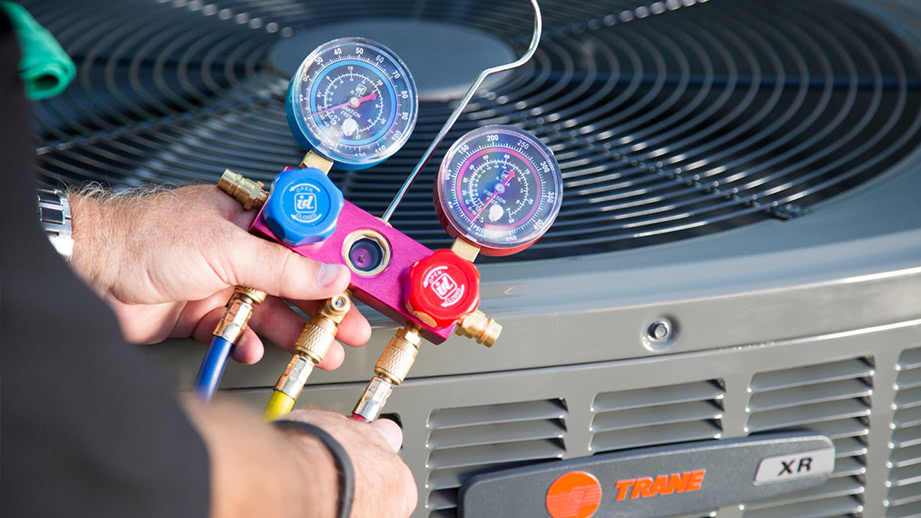Selecting an ideal HVAC solution for your home can feel challenging, notably with so many choices and technical features to evaluate. Regardless of whether air conditioner installation are constructing a new house, renovating, or just looking to improve your existing system, understanding the concept of HVAC and its operation is essential. HVAC refers to temperature control, air circulation, and cooling, and it holds a key role in maintaining your home is comfortable all year long. This beginner's guide will navigate you through the main elements of HVAC systems, frequent issues and their solutions, and care advice to keep your system running optimally.
As you investigate the different kinds of HVAC systems on the market, you will discover that each comes with its own set of features and pros. From classic central air systems to up-to-date ductless mini-splits and geothermal heat pumps, the choices can be daunting. Grasping the influence of different systems on energy efficiency and indoor air quality can help you make a knowledgeable choice that addresses your comfort needs but also aligns with your financial plan. By the end of this article, you will be prepared with valuable knowledge to choose the right HVAC system for your home and enjoy a comfortable living environment all year long. spintax ### Grasping HVAC Systems
HVAC refers to Heating, Air Circulation, and Cooling, the three core components responsible for maintaining indoor comfort levels. An HVAC system regulates temperature, dampness, and air quality throughout domestic and business spaces. Grasping the functions of these components is crucial for choosing the appropriate system for your house or company. Heating systems involves various methods to warm indoor spaces, while air conditioning cools and dehumidifies the air. Breathing systems provides a continuous flow of new air to create a healthy setting.
An HVAC system usually consists of a furnace or heating pump for heating, an air conditioning unit for cooling, and ductwork or alternative means of distributing conditioned air across the space. Modern systems can also include intelligent thermostats, air purifiers, and dampness regulation features, which enhance both comfort and efficiency of energy use. By optimizing these components, homeowners can attain a satisfying living space while reducing electricity use.
Moreover, understanding the interplay of these components can aid in diagnosing typical issues and making educated decisions about care and improvements. Regular maintenance and prompt repairs are crucial to extending the lifespan of an HVAC system. As technology advances, new innovations emerging within the HVAC sector offer improved efficient energy use and enhanced indoor air standards, providing further benefits to health and well-being in homes and commercial spaces as well.
Common HVAC Issues and Solutions
One of the typical issues homeowners face with their HVAC units is insufficient heating or cooling. This problem can arise from multiple sources, including a dirty air filter, which limits airflow and reduces efficiency. Another potential cause is incorrectly sealed ductwork, which can lead to considerable energy loss. To address this problem, begin by checking and replacing air filters periodically, and check ductwork for any leaks that demand sealing.
Another prevalent issue is the odd noises coming from the HVAC unit, such as clattering, banging, or hissing. These sounds can signal technical problems or loose components. The first step is to ensure that mounting brackets and screws are tight. If the sounds persist, it may be necessary to contact a certified technician who can diagnose and resolve more serious mechanical issues effectively.
Finally, a faulty thermostat can lead to significant discomfort and energy inefficiency. If More hints is running all the time or not responding to temperature changes, recalibrating or replacing the thermostat could be a feasible solution. Smart thermostats provide additional benefits, such as programming features and remote access, helping homeowners optimize their heating and cooling settings while potentially lowering energy bills.
Energy Efficiency and Care Tips
To guarantee your HVAC system functions optimally, one of the essential methods is regular maintenance. Arranging seasonal tune-ups can help identify potential problems early on, ensuring that your system operates smoothly throughout the seasons. A qualified technician can clean the coils, monitor refrigerant levels, and inspect other important components, which can result in improved performance and durability of your system.
Moreover, being mindful of your thermostat settings can considerably impact your energy bills. During winter, setting your thermostat a couple degrees lower while dressing in warmer clothing can reduce heating costs. In the summer, raising the temperature a few degrees can reduce air conditioning expenses while still keeping your home comfortable. Think about investing in a smart thermostat that intelligently adjusts according to your schedule or the weather, maximizing energy use.
Finally, improving your home’s insulation and repairing air leaks can work wonders for your HVAC efficiency. Insulating walls, attics, and ductwork minimizes energy loss, while weatherstripping windows and doors keeps conditioned air from leaking out. By taking these actions, not only do enhance the comfort of your home, but you also create a more energy-efficient environment, leading to reduced utility bills and a smaller carbon footprint.

